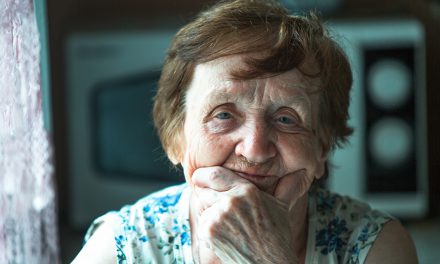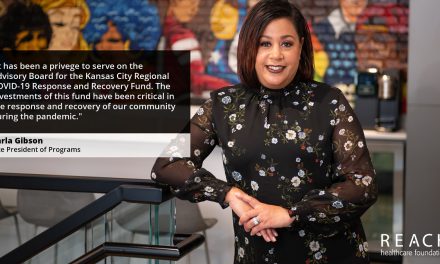n rural Missouri, being rural strong means being proud of one’s resiliency and ability to keep going when the going gets tough. However, it’s important to distinguish that resiliency means recognizing when help is needed and having the courage to seek it. The Health Care Collaborative (HCC) of Rural Missouri and its Live Well Community Health Centers offer a grant-funded program to treat opioid addiction focusing on education, stigma reduction, and support. The Rural Community Opioid Response Program (RCORP) connects opioid addicts to physical and mental health care providers and community resources to support whole-person care. The program also includes two peer counselors with firsthand mental health and addiction experiences who help addicts navigate recovery.
This program is especially integral as overdose-related deaths were declared a national public health emergency in 2017, with the opioid epidemic continuing to wage its own war right alongside the coronavirus pandemic. In 2020, drug overdose deaths accounted for more than 80,000 deaths in the U.S., 50,000 of which were opioid-related. According to the National Association of Counties (NAC), roughly 130 Americans die of opioid overdose daily.
Opioids are often prescribed for pain, making them easily available to not only the person suffering from injury but to those with access to their medicine cabinet. Prolonged use over time increases tolerance to the drug so eventually a higher dosage is required to get the same, or any, desired effect. Because of this, opioids are extremely accessible and addictive to people fighting severe or chronic pain. Opioids are also found on the street and can be taken multiple ways including intravenously, which allows opportunities for further health complications if needles are dirty and/or shared. Synthetic opioids such as fentanyl may also be mixed in with the product unknowingly to the user and prove fatal. According to the Centers for Disease Control and Prevention (CDC), manufactured fentanyl, an infamously fatal synthetic opioid, is on the rise. Between May 2019 and May 2020, it caused an increase of overdose deaths by 38.4%.
As the ongoing COVID-19 pandemic causes increased rates of substance use due to stress, experts and prediction models suggest it will only get worse if sufficient treatment is not expanded. The combination of accessibility to opioids, the shame and stigma surrounding addiction, and the lack of adequate substance use disorder (SUD) education and treatment create a cycle that is extremely difficult to break.
Addiction is often seen as a personal failure rather than an illness. However, addiction affects both the brain and body, causing an intense craving for the substance that prioritizes it over all other needs. When addicts attempt to quit abruptly, they may experience painful withdrawal symptoms including severe ongoing illness and potential seizures. Addiction also causes changes in behavior to reach this goal, including becoming distant from loved ones, stealing to support the habit, becoming secretive, aggressive, and defensive. These behaviors, though unintentional, often hurt people within the support system and can become increasingly challenging as the cycle of addiction remains unbroken.
Stigmas around substance use materialize through frustration when addicts seemingly continue making choices they know hurt others, despite them being a victim to the disease. Treatment for SUD must include education about the nature of addiction, how it affects behaviors and relationships, and what is and isn’t within the addict’s control. Shaming or embarrassing someone for their addiction and attempting to guilt them into treatment often pushes them further from seeking help.
A Mission to Reduce Morbidity and Mortality
HCC received funding from Health Resources and Services Administration (HRSA) which provided the $1 million grant for a three-year period. The overarching goal of the program is to reduce morbidity and mortality due to substance use disorders and opioid overdose in high-risk communities. This goal is achieved through enhanced community partnerships, education, stigma reduction, and access to care.
According to HCC risk management coordinator Kayla Schmidt, the “intensive and grueling” first days of the grant’s implementation included creating a thorough workplan to address unmet needs and areas of improvement. A key part of the workplan is assessing how to sustain the program after the grant ends. Currently in the program’s second year, Schmidt says HCC is always looking for ways to expand. “We never want to have the mindset that it ends after the three-year period because that’s just not realistic,” Schmidt said.
Schmidt manages safety and Occupational Safety and Health Administration (OSHA) policies as well as several grants including RCORP. She tracks and reports data quarterly to HRSA, focusing on local reports of substance and alcohol use, how many people are enrolled in HCC’s Medication Assisted Treatment (MAT) program, patient demographics, what patients are being treated for, and the community training and education HCC provides.
RCORP achieves its goal of enhancing the quality of life for those struggling in a sustainable manner by utilizing existing community resources. “Our main goal was not to recreate the wheel,” Schmidt said. “It’s a lot of work for a small clinic, especially as a federally-qualified health clinic (FQHC), to rework all of these resources that have been proven successful in other organizations.”
The program partners with local law enforcement and parole officers for prevention education through the D.A.R.E. program in schools and community health liaisons who help increase participation in crisis intervention training and mental health first aid training. RCORP also works with Community Care Link, the Compass program, and additional mental health and substance use programs offering educational and supportive resources. If services needed are not available through HCC and its Live Well clinics, RCORP refers patients to various health and wellness services including peer support, insurance services, or housing relief. “By decreasing substance use and increasing those unique referrals, we’re hoping to educate and reduce stigma in the community,” Schmidt said.
Community Care for the Whole Person
HCC’s vision for the RCORP grant and any future expansions is to create a community for the whole person. Mental health issues and SUD cooccur and can worsen the other’s symptoms if not treated simultaneously. Treatment must include assessing the unmet needs of the whole person and how these issues, and any others, interact with each other. Now at the halfway point of the project’s timeline, the program has completed more than 700 service referrals, increased marketing and enrollment of its Medication Assisted Treatment (MAT) program, and implemented two peer counselors as well as new chapters of the support groups Narcotics Anonymous (NA) and Celebration Recovery.
Peer counselors Will Jordan and Tamara Lane have helped HCC reach patients they have not previously, a feat Schmidt accredits to their ability to empathize and connect with those struggling. “That firsthand experience is really the breakthrough for our peer coaches,” she said. “They’re able to get patients resources they need because they’ve walked in their shoes.” Jordan oversees the NA group and Lane is the women’s small group leader for Celebration Recovery. Both programs, as well as the pre-existing local Alcoholics Anonymous (AA) group, have seen great success; one group grew from a single attendee to 30 so far and Schmidt believes they will continue to expand.
“They [the peer counselors] saw a need and came to me asking to start the groups. I think that shows the initiative they have in the community and the impact they want to make,” Schmidt said. In rural communities, especially, where stigmas surrounding substance use may discourage people from seeking care, peer counselors have been a trusted source of support. “Word of mouth is big in small towns – you break down stigma by talking about it. Our peer coaches have received calls from people who have never contacted us before.” For individuals interested in joining either group, contact the peer counselors directly for more information: Will Jordan (NA), 660.251.3793; Tamara Lane (Celebration Recovery), 660.251.8016.
Making a Tangible Impact
Throughout her time with the program, Schmidt’s most impactful experience has been seeing success stories through their referral programs, both in person and in data. She recalled finding out through law enforcement about previous patients who had received support and resources from HCC yet ended up back on the outskirts of Kansas City, Missouri. “We’d try to close the gaps on those circles, but they never got closed. Now [through RCORP] we’re able to connect the whole circle 100%.”
By tracking the program’s data, Schmidt tangibly sees the progress made and that the people brought in by law enforcement or other agencies are still doing well or receiving help and remaining in touch. “We’re not just saying we’re going to refer or help someone; we’re actually going to follow through with what we say,” Schmidt said. “That has been our greatest success, seeing the perspective from the data coming alive each month. It’s kind of outstanding.”
Addiction is a disease and can happen to anyone. For those struggling, Schmidt recommends getting educated about addiction and mental health symptoms, deciding what kind of help to seek, and confiding in someone trustworthy. Peer counselors can help guide the recovery process and may even find resources their supervisors may not be aware of due to their firsthand experiences with mental health and addiction. “They [peer counselors] get to know that person on a very personal level,” Schmidt said. “They get to see their needs and their personality and they’re able to find a good match for these programs.”
For individuals facing opioid use and addiction, contact HCC at 660.259.2440 and ask to be transferred to a peer counselor. “Everybody’s journey is different,” said Schmidt. “When you’re ready, you’re ready, and we will be here.”
For information about volunteering with HCC and RCORP, or for more information about community partnership, project, or grant opportunities, contact Kayla Schmidt at 660.214.2862. For more information about HCC and its programs and services, visit hccnetwork.org.
For immediate help, please call the Substance Abuse and Mental Health Services Administration (SAMHSA) 24/7 hotline at 1.800.662.HELP (4357). Learn more about addiction and the warning signs of SUD here.








